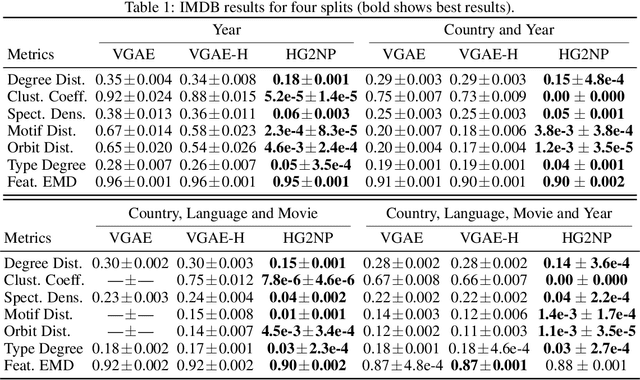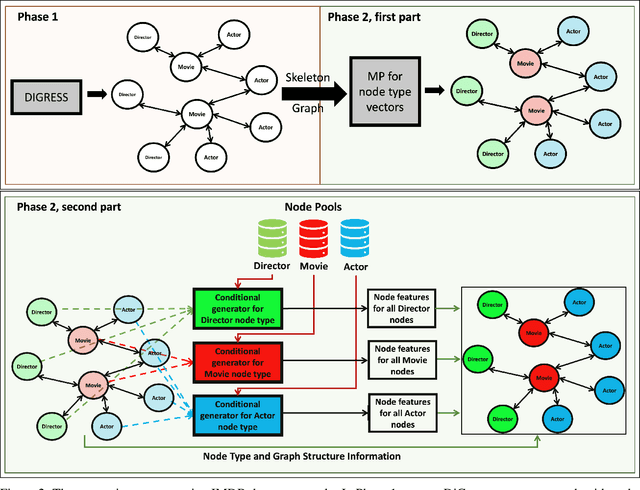Hritaban Ghosh
Indian Institute of Technology Kharagpur, India
Heterogeneous Graph Generation: A Hierarchical Approach using Node Feature Pooling
Oct 15, 2024



Abstract:Heterogeneous graphs are present in various domains, such as social networks, recommendation systems, and biological networks. Unlike homogeneous graphs, heterogeneous graphs consist of multiple types of nodes and edges, each representing different entities and relationships. Generating realistic heterogeneous graphs that capture the complex interactions among diverse entities is a difficult task due to several reasons. The generator has to model both the node type distribution along with the feature distribution for each node type. In this paper, we look into solving challenges in heterogeneous graph generation, by employing a two phase hierarchical structure, wherein the first phase creates a skeleton graph with node types using a prior diffusion based model and in the second phase, we use an encoder and a sampler structure as generator to assign node type specific features to the nodes. A discriminator is used to guide training of the generator and feature vectors are sampled from a node feature pool. We conduct extensive experiments with subsets of IMDB and DBLP datasets to show the effectiveness of our method and also the need for various architecture components.
 Add to Chrome
Add to Chrome Add to Firefox
Add to Firefox Add to Edge
Add to Edge